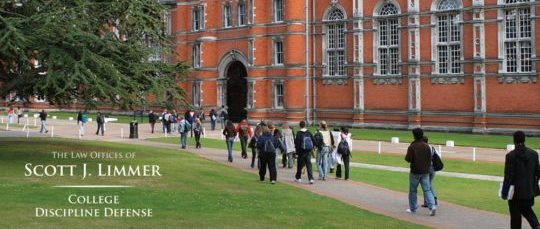The failure of schools to fairly handle student disciplinary proceedings is no longer a well-hidden secret, as recent court decisions are spelling out in some detail. Take, for instance, the decision handed down in July this year by a state court in California in the case of Doe v. Regents of the University of California, San Diego, which overturned a disciplinary panel’s decision after one student complained of sexual misconduct by another, finding the outcome unsupported by significant facts and the proceeding seriously unfair to the accused student.
I will be looking at this case in a future article in the context of illustrating problems raised by new “yes means yes” laws on proving consensual sex, which essentially strip defendants of the presumption of innocence. That aside, let me briefly say the court’s overturning of the university’s actions did not hinge on minor or technical lapses. Instead, the court invalidated the disciplinary hearing outcome because it was so fundamentally unfair to the accused student, seen in the multiple ways the process denied basic constitutional rights.
First, under the 6th Amendment, accused persons have the right to confront accusers and cross-examine witnesses. The hearing panel (made up of three out-of-their-depth students, with a presiding university staffer running the show) accepted and relied on a report from a university investigative staffer who did not appear at the hearing. The university also withheld from the accused statements made to the investigator and the accuser’s statement.
Surely, you might imagine, the accused student’s lawyer must have pointed this out to the panel. You’d be wrong, since although the university allowed the student to be accompanied by a lawyer (many schools don’t), it did not allow the lawyer to speak, just to pass notes to the client.
Nor could the accused student ask questions needed for his defense. Under the school’s disciplinary hearing procedures, the accused student — but not the university official essentially acting as a prosecutor — had to submit questions in advance in writing to the presiding university official, who had complete discretion to accept, reject or revise them.
In this case, the presiding officer opted to allow just nine out of 32 highly relevant questions submitted in advance by the accused student, and permitted the key witness to refuse to answer some. Of course, requiring questions to be submitted in advance makes it impossible to ask questions to follow up on answers, and basically makes it impossible to conduct a true cross-examination.
The university staffer who presented the case against the student also did things, whether intentionally or not, that in a real world prosecution would get a case quickly thrown out. He falsely claimed the student had previously been charged with similar acts, and only presented the investigator’s report in his closing argument, when it was too late for the accused to address it.
The hearing panel also made much of the accused’s decision not to testify; the trial court found this violated the accused student’s 5th amendment right to remain silent. And, each time the accused student appealed the hearing’s decision through the university’s appeal process, his penalties were increased; the state court judge found that smacked of unlawful retaliation for exercising his appeal rights.
(The next article in this series will examine several proposals, both good and bad, for changing college disciplinary hearing procedures.)
